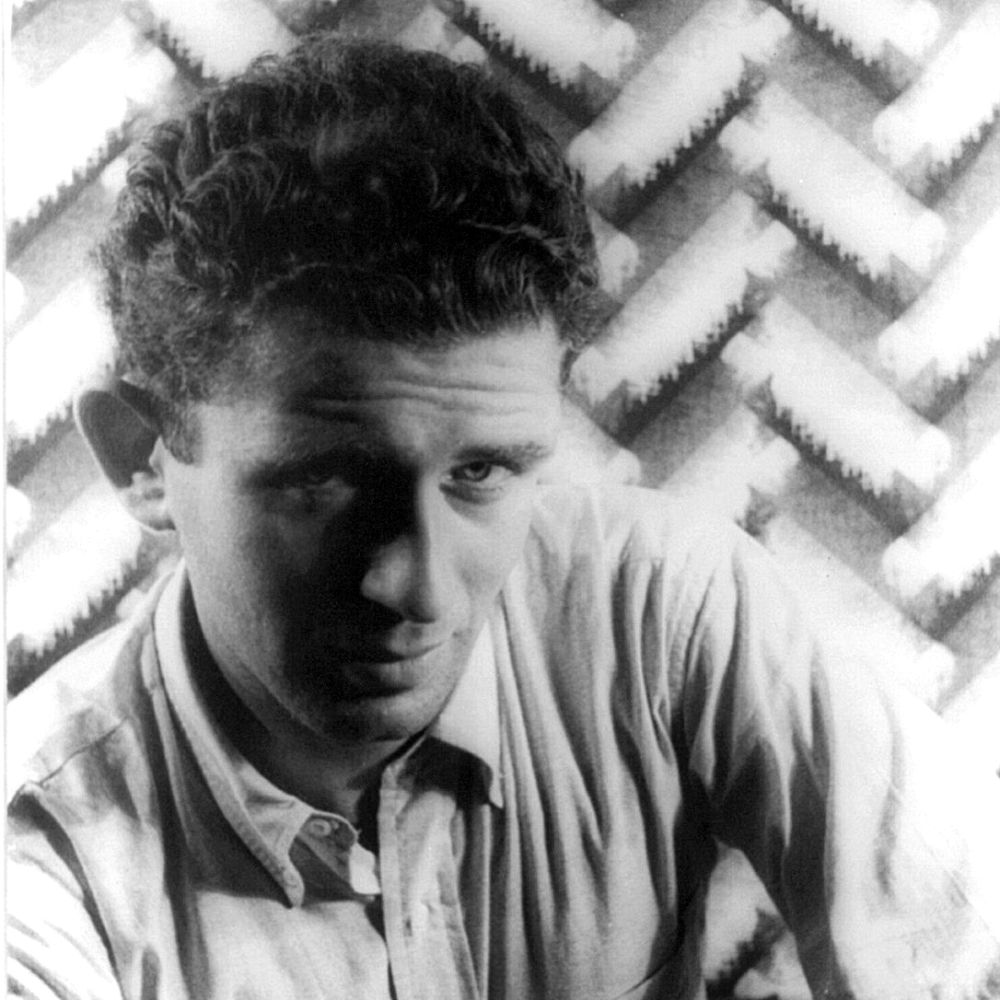Issue 31, Winter-Spring 1964
 Norman Mailer, ca. 1948, photograph by Carl Van Vechten.
Norman Mailer, ca. 1948, photograph by Carl Van Vechten.
The interview took place on the afternoon of Saturday, July 6, 1963. The setting was Norman Mailer’s Brooklyn Heights apartment, whose living room commands a panoramic view of lower Manhattan, the East River, and the New York harbor. The living room is fitted out with nautical or maritime furnishings and decorations, and Mailer, his curls unshorn, seemed at odd moments during the afternoon the novelist-as-ship-captain, though less Ahab than Captain Vere, and less both than Captain Shotover in ripe middle age. Mailer had recently stopped smoking, and the absence of nicotine had caused him to put on weight, which he carries gracefully and with vigor; the new amplitude of flesh seems to have influenced his spirit in the direction of benignity.
Shortly after the interviewer arrived, Mailer excused himself for a few moments. He wanted to change, he said, into his writer’s costume. He emerged wearing faded dungarees and an open-necked sport shirt. His sharp blue eyes sparkled as he suggested that the interviewer keep this fashion note in mind. Lunch was then prepared and served by Mailer in what must be called lordly fashion. In general, he conducts himself without affectation as a kind of secular prince. The interviewer was repeatedly struck during the course of a long afternoon’s work by Mailer’s manners, which were exquisite. The role of novelist-being-interviewed suits him very well.
INTERVIEWER
Do you need any particular environment in which to write?
NORMAN MAILER
I like a room with a view, preferably a long view. I dislike looking out on gardens. I prefer looking at the sea, or ships, or anything that has a vista to it. Oddly enough, I’ve never worked in the mountains.
INTERVIEWER
Do you need seclusion?
MAILER
I don’t know if I need seclusion, but I do like to be alone in a room.
INTERVIEWER
When did you first think of becoming a writer?
MAILER
That’s hard to answer. I did a lot of writing when I was young.
INTERVIEWER
How young?
MAILER
Seven.
INTERVIEWER
A real novel?
MAILER
Well, it was a science-fiction novel about people on Earth taking a rocket ship to Mars. The hero had a name that sounded like Buck Rogers. His assistant was called Dr. Hoor.
INTERVIEWER
Doctor ...?
MAILER
Dr. Hoor. Whore, pronounced H-o-o-r. That’s the way we used to pronounce “whore” in Brooklyn. He was patterned directly after Dr. Huer in Buck Rogers, who was then appearing on radio. This novel filled two and a half paper notebooks. You know the type, about seven by ten. They had soft shiny blue covers and they were, oh, only ten cents in those days, or a nickel. They ran to perhaps a hundred pages each, and I used to write on both sides. My writing was remarkable for the way I hyphenated words. I loved hyphenating, so I would hyphenate “the” and make it th-e if it came at the end of the line. Or “they” would become the-y. Then I didn’t write again for a long time. I didn’t even try out for the high-school literary magazine. I had friends who wrote short stories, and their short stories were far better than the ones I would write for assignments in high-school English, and I felt no desire to write. When I got to college I started again. The jump from Boys’ High School in Brooklyn to Harvard came as a shock. I started reading some decent novels for the first time.
INTERVIEWER
You mentioned in Advertisements for Myself that reading Studs Lonigan made you want to be a writer.
MAILER
Yes. It was the best single literary experience I had had, because the background of Studs was similar to mine. I grew up in Brooklyn, not Chicago, but the atmosphere had the same flatness of affect. Until then, I had never considered my life or the life of the people around me as even remotely worthy of—well, I didn’t believe they could be treated as subjects for fiction. It had never occurred to me. Suddenly I realized you could write about your own life.
INTERVIEWER
When did you feel that you were started as a writer?
MAILER
When I first began to write again at Harvard. I wasn’t very good. I was doing short stories all the time, but I wasn’t good. If there were fifty people in the class, let’s say I was somewhere in the top ten. My teachers thought I was fair, but I don’t believe they ever thought for a moment that I was really talented. Then in the middle of my sophomore year I started getting better. I got on the Harvard Advocate, and that gave me confidence, and about this time I did a couple of fairly good short stories for English A-1, one of which won Story magazine’s college contest for that year. I must say that Robert Gorham Davis, who was my instructor then, picked the story to submit for the contest and was confident it would win.
INTERVIEWER
Was that the story about Al Groot?
MAILER
Yes. And when I found out it had won—which was at the beginning of the summer after my sophomore year (1941)—well, that fortified me, and I sat down and wrote a novel. It was a very bad novel. I wrote it in two months. It was called No Percentage. It was just terrible. But I never questioned any longer whether I was started as a writer.
INTERVIEWER
What do you think were some of the early influences in your life? What reading, as a boy, do you recall as important?
MAILER
The Amateur Gentleman and The Broad Highway were glorious works. So was Captain Blood. I think I read every one of Farnol’s books and there must be twenty of them. And every one of Sabatini’s.




